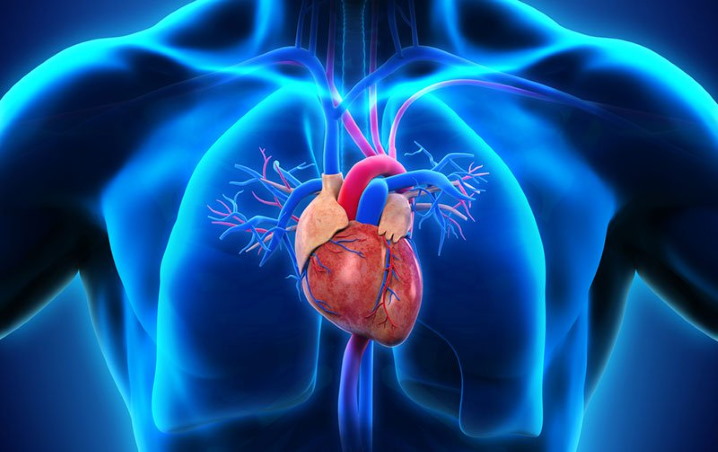The mind-heart connection through Cardiology care
The mind-heart connection through Cardiology care
Blog Article
Comprehending the Value of Cardiology in Modern Healthcare Providers
Cardiology plays an important role in modern healthcare, specifically as heart disease remains to be the leading root cause of mortality worldwide. Breakthroughs in diagnostics and treatment have changed individual treatment, enabling earlier interventions and boosted results. The shift in the direction of preventive cardiology equips individuals to manage their health proactively. As modern technology proceeds to develop, the combination of innovative options might additionally redefine cardiology's influence on public health, motivating a more detailed examination of emerging trends and their ramifications.
The Frequency of Cardiovascular Disease and Its Effect On Public Health And Wellness
Heart disease continues to be the leading cause of death worldwide, its influence prolongs far past individual clients to affect public health and wellness systems and economic situations. The high frequency of heart disease positions a substantial pressure on medical care resources, requiring enhanced financing for avoidance, rehabilitation, and therapy programs. Public wellness campaigns must deal with risk factors such as excessive weight, smoking cigarettes, and inactive way of livings, which add substantially to the rising incidence of heart conditions.Moreover, the financial burden related to heart problem is enormous, encompassing not just direct medical costs yet also indirect expenses connected to lost productivity and premature death. Areas face obstacles in managing these costs, commonly leading to variations in healthcare access and end results. As the populace ages and lifestyle-related dangers remain to intensify, the urgency for efficient cardiology treatments comes to be vital. Addressing heart disease is not only a matter of individual wellness but likewise an important public wellness priority.
Advancements in Heart Diagnostics and Imaging Techniques
Recent innovations in heart diagnostics and imaging methods have transformed the field of cardiology, enhancing the capability to find and keep an eye on cardiovascular disease. Techniques such as cardiac MRI, CT angiography, and echocardiography have actually come to be significantly innovative, giving detailed pictures of cardiac frameworks and functions. These methods permit the very early identification of problems like coronary artery illness, cardiac arrest, and valvular disorders.Moreover, improvements in non-invasive diagnostics, such as wearable innovation and remote monitoring devices, have actually equipped people and doctor. These devices assist in real-time monitoring of heart rhythms and other essential indications, resulting in timely treatments. Furthermore, expert system is being incorporated into imaging analysis, improving accuracy and efficiency in medical diagnosis.
Innovations in Therapy Alternatives for Heart Conditions
Current developments in cardiology have caused significant developments in treatment alternatives for heart disease. These include sophisticated surgical methods that improve step-by-step results and arising medicines that provide brand-new avenues for therapy. As the area progresses, these technologies play an important function in enhancing individual care and outcomes.
Advanced Surgical Techniques
Developments in surgical methods have actually transformed the landscape of cardiology, providing brand-new wish for patients with heart problems. Minimally invasive treatments, such as catheter-based interventions, have actually considerably minimized recuperation times and hospital keeps. Methods like robotic-assisted surgical treatment enhance precision, allowing specialists to browse complex physiological frameworks with greater precision. Additionally, developments in imaging modern technology assist in real-time visualization during treatments, improving end results. Transcatheter aortic shutoff substitute (TAVR) exhibits a development in dealing with aortic stenosis, making it possible for valve replacement without open-heart surgery. Furthermore, hybrid strategies that incorporate medical and catheter-based methods give customized options for numerous heart concerns. These advanced medical strategies not just enhance individual safety and security however also expand therapy alternatives, highlighting the vital duty of development in modern cardiology practices.
Arising Medicines and Therapies
As the landscape of cardiology remains to develop, arising medications and therapies play a pivotal duty in boosting therapy choices for heart disease. Developments such as novel anticoagulants and progressed lipid-lowering representatives have actually transformed the monitoring of cardio conditions, considerably minimizing individual morbidity and mortality. In addition, the development of genetics therapies and regenerative medication provides appealing avenues for dealing with conditions previously considered permanent. Medical trials are continuously disclosing the efficiency of these therapies, pressing the borders of typical therapies. Additionally, the integration of electronic health and wellness innovations promotes tailored medicine, permitting customized therapy strategies based upon hereditary and lifestyle aspects. Collectively, these developments highlight the dynamic nature of cardiology, improving individual outcomes and redefining standards of care in contemporary healthcare.
The Role of Preventive Cardiology in Client Care
Precautionary cardiology plays a crucial duty in person treatment by concentrating on the recognition of danger factors that add to heart problem. Via way of living modification approaches and early detection techniques, medical care companies can successfully minimize the incidence of cardio occasions - Cardiology. This proactive technique not only boosts individual outcomes yet additionally promotes long-lasting health
Risk Element Identification
While cardio illness continue to be a leading reason for morbidity and death worldwide, effective danger element identification offers as a keystone of precautionary cardiology. Identifying threat elements such as hypertension, diabetes, family members, and hyperlipidemia background is essential for very early intervention. Medical care professionals make use of numerous evaluating methods to examine these variables, enabling customized safety nets. Furthermore, understanding a patient's lifestyle selections, such as cigarette smoking and physical inactivity, further notifies danger evaluations. This detailed evaluation enables medical professionals to create individualized care plans targeted at mitigating dangers. By focusing on risk element recognition, healthcare systems can boost client outcomes and lower the overall burden of heart diseases, ultimately adding to enhanced public health and wellness strategies and resource allotment.
Way Of Life Adjustment Approaches
A multitude of research studies highlights the critical role of way of living adjustment methods in lowering cardiovascular disease threat. These techniques encompass dietary modifications, raised exercise, smoking cigarettes cessation, and weight management. By embracing a heart-healthy diet plan rich in fruits, veggies, entire grains, and lean healthy proteins, individuals can lower cholesterol degrees and high blood pressure. Regular exercise strengthens the heart and boosts general cardio wellness. In addition, giving up cigarette smoking greatly lowers the threat of cardiovascular disease and improves recuperation prices for those with status quo. Weight management further adds to cardio health and wellness by mitigating other danger factors such as diabetic issues and high blood pressure. Carrying out these lifestyle alters not just promotes private well-being however additionally works as a foundation of preventive cardiology in individual treatment.
Early Detection Techniques
Way of life adjustments substantially add to lowering cardiovascular disease threats, but they are most effective when matched with early discovery methods. Preventive cardiology stresses the significance of identifying potential heart problems prior to they escalate into major problems. Techniques such as blood stress monitoring, cholesterol screening, and progressed imaging technologies visit this website like echocardiograms play vital duties in reviewing cardio health and wellness. Biomarkers and hereditary screening likewise improve the accuracy of early discovery, permitting for customized precautionary methods. Normal cardiac danger evaluations equip health care providers to intervene proactively, potentially avoiding cardiovascular disease and strokes (Cardiology Jupiter). By integrating these early detection techniques right into regular treatment, individuals can profit from prompt lifestyle treatments and targeted therapies, eventually improving and boosting end results quality of browse around this site life
Integrating Innovation Into Cardiology Practices
As advancements in innovation proceed to improve various areas, the assimilation of cutting-edge tools and systems right into cardiology methods has come to be necessary for boosting patient care and outcomes. Telemedicine systems permit cardiologists to check people from another location, enhancing accessibility to care while reducing the worry on healthcare facilities. Wearable tools, such as smartwatches, allow constant heart price surveillance, informing both medical professionals and clients to prospective concerns in real-time. In addition, expert system (AI) is being made use of to evaluate substantial quantities of heart data, assisting in early medical diagnosis and tailored therapy strategies. Advanced imaging methods, including 3D echocardiography, improve visualization of heart structures, leading to more precise interventions. Digital health and wellness records (EHRs) streamline individual information management, making sure that cardiologists have immediate accessibility to crucial information. With each other, these technical developments are transforming cardiology, advertising proactive administration and improved health and wellness end results for individuals with cardiovascular conditions.
The Relevance of Individual Education And Learning and Involvement
Patient education and learning and interaction play a crucial function in the administration of cardio health. By outfitting individuals with expertise concerning their conditions, treatment alternatives, and way of life modifications, medical care carriers empower individuals to take an active duty in their treatment. This positive technique can result in improved adherence to recommended medicines, nutritional adjustments, and workout programs, inevitably decreasing the danger of complications.Engagement likewise cultivates a strong patient-provider relationship, urging open interaction and trust. When people feel notified and involved, they are most likely to voice concerns and ask questions, which can result in much better medical end results. In addition, instructional sources, such as workshops or electronic platforms, can enhance understanding and promote self-management approaches. Generally, prioritizing client education and involvement is necessary for enhancing cardiovascular health and wellness, enhancing high quality of life, and reducing health care prices linked with cardio conditions.
Future Fads in Cardiology and Their Prospective Effect

Regularly Asked Concerns
What Way Of Living Changes Can Lower Heart Condition Risk?
The present inquiry addresses way of life modifications that can greatly reduce cardiovascular disease threat. Cardiology. Embracing a well balanced diet plan, taking part in routine physical task, preserving a healthy and balanced weight, managing stress, and staying clear of cigarette can notably improve cardiovascular wellness
Exactly How Can I Acknowledge Very Early Signs of Heart Troubles?
Recognizing very early indicators of heart troubles entails tracking signs and symptoms such as upper body discomfort, shortness of breath, exhaustion, and irregular heartbeat. Timely recognition of these signs can trigger required clinical examination and intervention for much better outcomes.
What Are the Differences In Between Cardiologists and Cardiac Surgeons?
The distinctions in between cardiologists and cardiac doctors exist in their duties; cardiologists primarily identify and handle heart disease via non-invasive approaches, while heart surgeons execute surgical procedures to remedy architectural heart issues. Each plays a vital, unique duty.

Just how Often Should I Get My Heart Wellness Checked?
The regularity of heart medical examination varies based on private risk factors. Usually, grownups ought to undergo assessments every one to two years, while those with present problems may require even more regular assessments as suggested by health care experts.
What Function Does Genes Play in Heart Problem Danger?
Genes considerably influences heart illness risk, with familial patterns indicating acquired conditions. Specific genes can incline people to hypertension, cholesterol problems, and other cardiovascular troubles, highlighting the significance of hereditary screening in reviewing heart health and wellness. Heart illness remains the leading cause of death worldwide, its influence expands far beyond private clients to impact public wellness systems and economic climates. Public health and wellness initiatives need to address threat aspects such as obesity, cigarette smoking, and less active lifestyles, which contribute greatly to the rising incidence of heart conditions.Moreover, the financial worry linked with heart illness is enormous, encompassing not only direct clinical expenses however additionally indirect costs connected to shed efficiency and premature mortality. Preventive cardiology plays a necessary duty in person treatment by concentrating on the identification of risk elements that add to heart condition. Synthetic intelligence (AI) and equipment knowing are improving diagnostics and individual tracking, making it possible for very early detection of heart illness. The differences between cardiologists and cardiac doctors exist in their roles; cardiologists mostly manage and detect heart conditions via non-invasive methods, while cardiac surgeons do surgical procedures to remedy structural heart concerns.
Report this page